
A Salesperson Was Cheated Out Of A Huge Payout, So He Decided To Take Down The Company
If you are at the top of your field, a commissioned-based job might seem like a gift from heaven. The chance to actually put your abilities to work and earn a pretty penny can motivate people to work long hours, safe in the knowledge that they will be rewarded for it.
This is what one salesman thought when he put in a week of work, fourteen hours a day. Then, his company attempted to restructure the entire commission system to cheat him out of a payout. So he decided that this was the right time to quit and take the entire company down with him.
A good salesperson can make a lot of money just on commissions
Image credits: msvyatkovska (not the actual photo)
But one worker ended up cheated out of his payout when the company tried to change their policy
Image credits: westend61 (not the actual photo)
Image credits: HuntingTheWumpus
Commissions are often used by companies to cheat workers out of wages
While a company “keeping” a salesperson’s commissions is illegal, OP already detailed the various ways this company isn’t exactly playing it by the book in the first place. The pay structure OP faced was certainly unorthodox, as it appeared to be fully commission-based. In other words, if he didn’t make any sales, he would get practically nothing.
While this might seem quite stressful, OP was a proficient salesman and instead turned his time into money. So much money, in fact, that this company simply could not pay him. Now, the legal area around 100% commission work is a bit murky in Canada, where OP lives, however, some laws state that an employer can’t actually avoid paying you a wage.
In fact, OP did the correct thing by quitting, as taking the “5%” he was told would legitimize the restructuring of the commission system. Employees whose payment system is changed without their consent have the right to legal action, but only if they make their unhappiness known and refuse the new system immediately. If one doesn’t raise a fuss, it might look like they agree with the changes.
However, there are legal provisions to protect salespeople in such cases
Image credits: Ron Lach (not the actual photo)
Most employment experts suggest reaching out to a lawyer in some cases, as an employer simply pocketing your pay is deeply illegal. However, OP already had a solid plan and was armed with the information “Frank” provided him. A lawyer perhaps would not have suggested the plan he went with, however, it appears to have been entirely effective.
Interestingly, Canadian law also includes commissions in severance calculations, meaning that, had OP found a way to “outlast” his boss and get himself fired, he could have perhaps still gotten a solid payout. But the crux of the issue is that this company didn’t actually have the money necessary to pay OP.
While perhaps they simply did not believe their sales staff could work so hard, perhaps as a result of too intensive yoga, in theory, a high volume of sales should always be a good thing. Instead, they implemented a commission system so dumb that their best salesperson could not actually get their payout. Realistically, OP would have probably had to leave the job anyway, as this business could not sustain him.
Realistically, OP would not be able to sustain these sorts of sales
Image credits: Lukas (not the actual photo)
While it’s unclear what the precise numbers would look like, the exponential increase in sales commissions would suggest that even a more “common sense” system would lead to OP having to take a significant pay cut. While the company was wrong to not honor its own system, it’s not exactly rational to assume a business would keep a policy or an employee who actively loses them money.
However, OP is right that they were cheating. Bad policy or not, the law prohibits a company from retroactively reducing a commission. And instead of negotiating a delayed payout system or some other means of keeping a very competent salesman around, the company decided to cheat and get what was coming to them.
OP shared some extra details
Readers loved OP’s strategy and applauded his actions
As someone who survived the telephone wars, the poster is a horrible person. "Marketing" in long distance was a euphemism for "committing wire fraud."
When you screw over other people, you eventually end up screwing yourself.
As someone who survived the telephone wars, the poster is a horrible person. "Marketing" in long distance was a euphemism for "committing wire fraud."
When you screw over other people, you eventually end up screwing yourself.

 Dark Mode
Dark Mode 

 No fees, cancel anytime
No fees, cancel anytime 





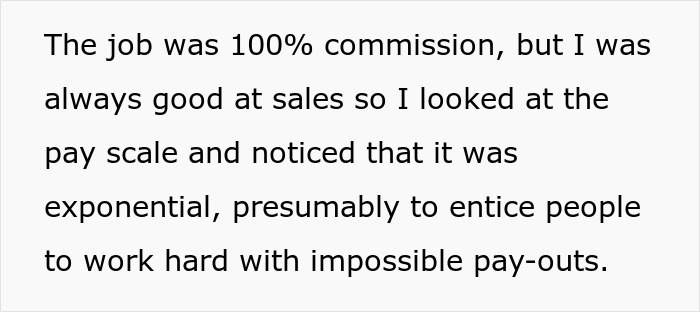
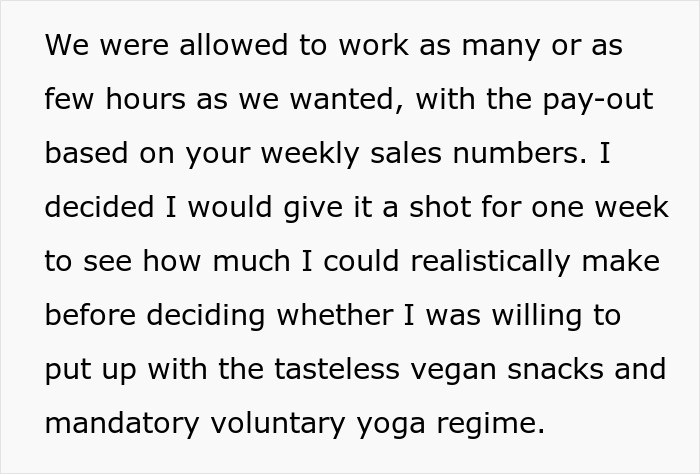
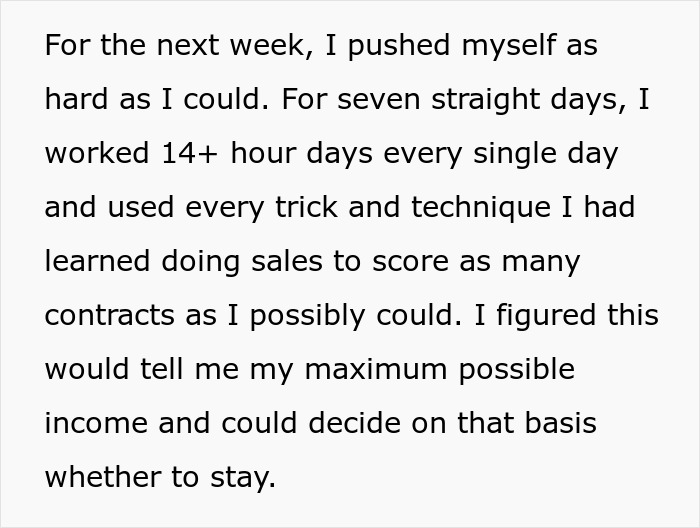
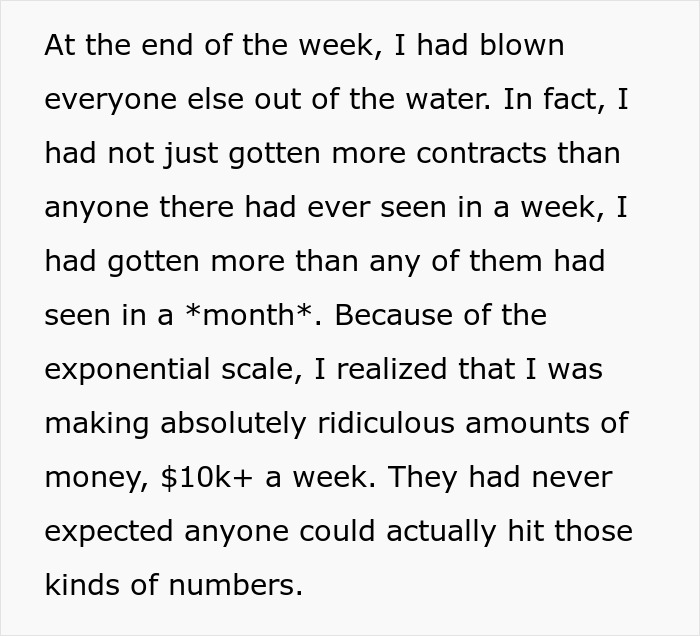
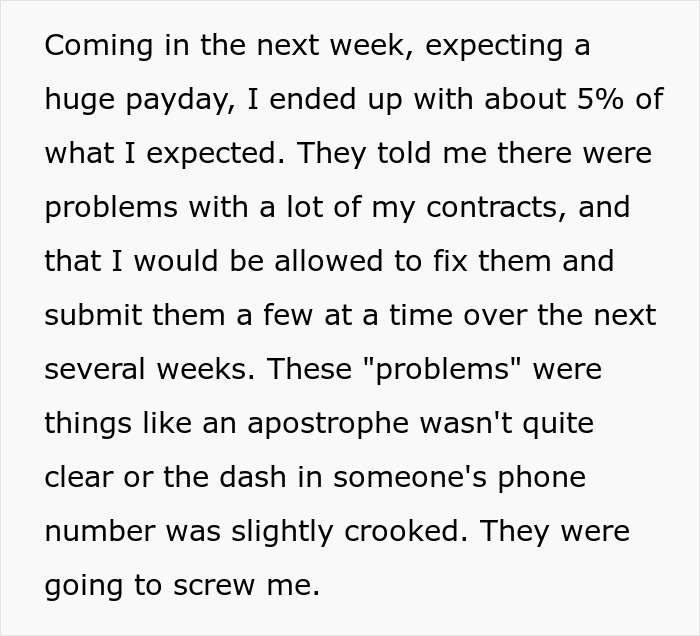
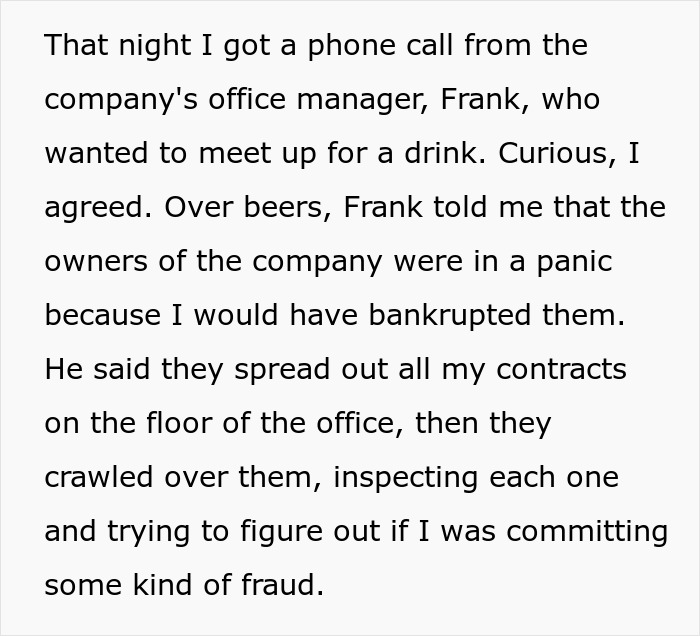

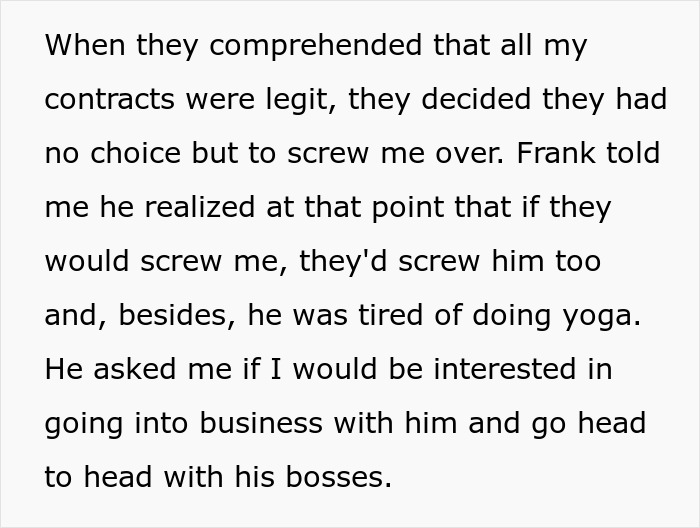
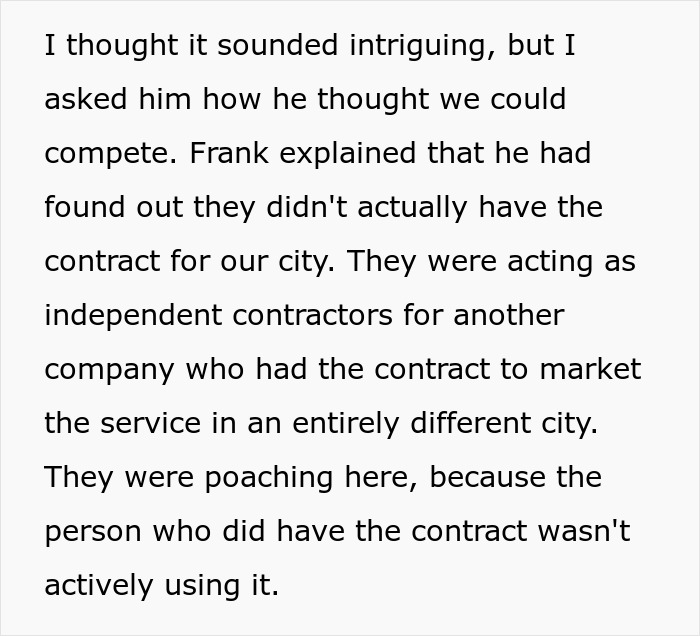
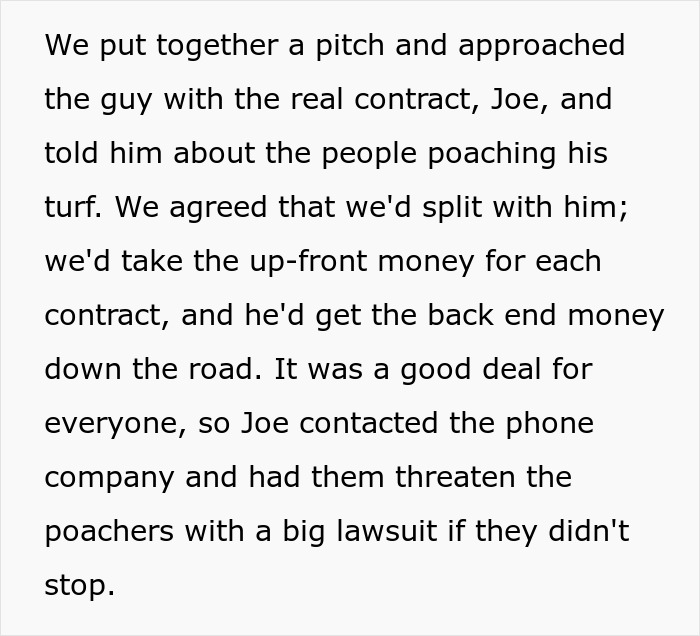
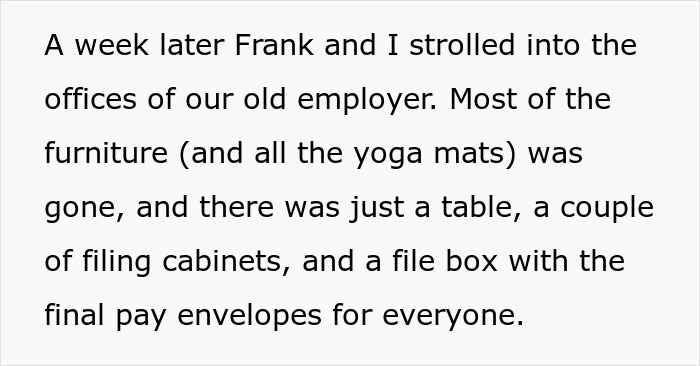
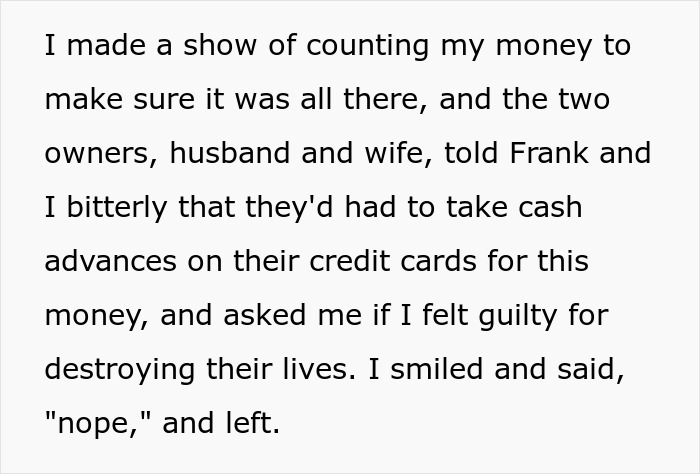



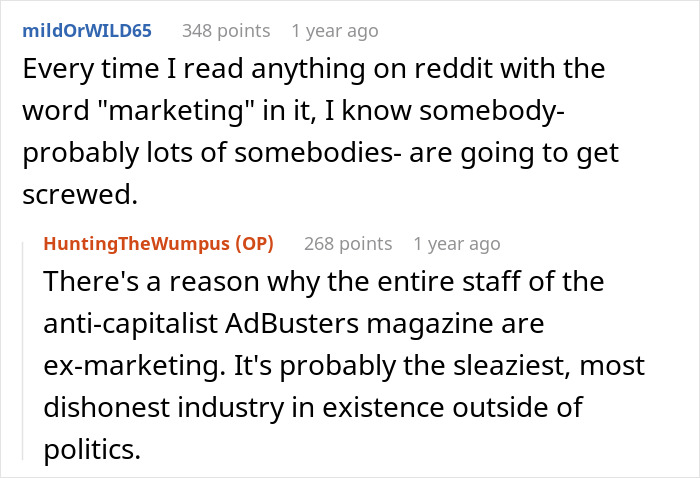









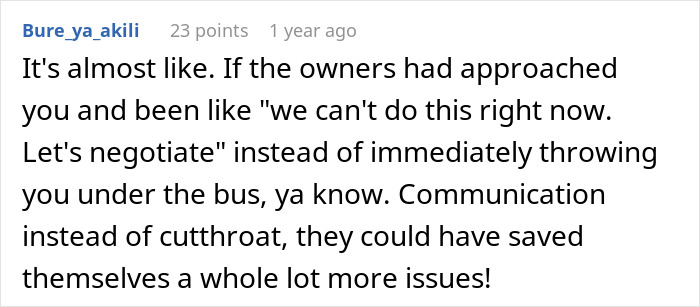
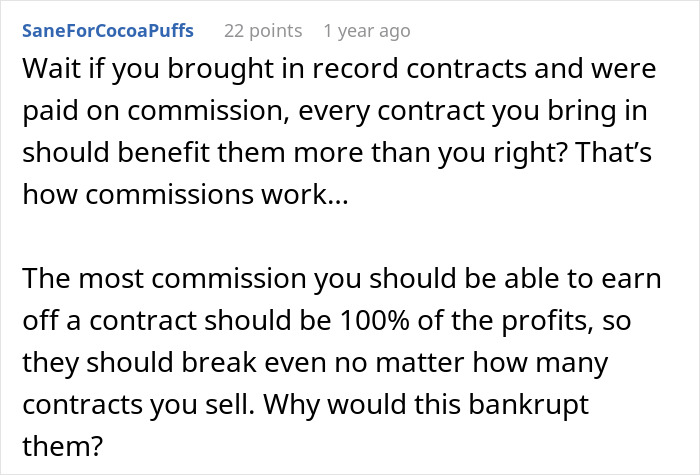















































51
6